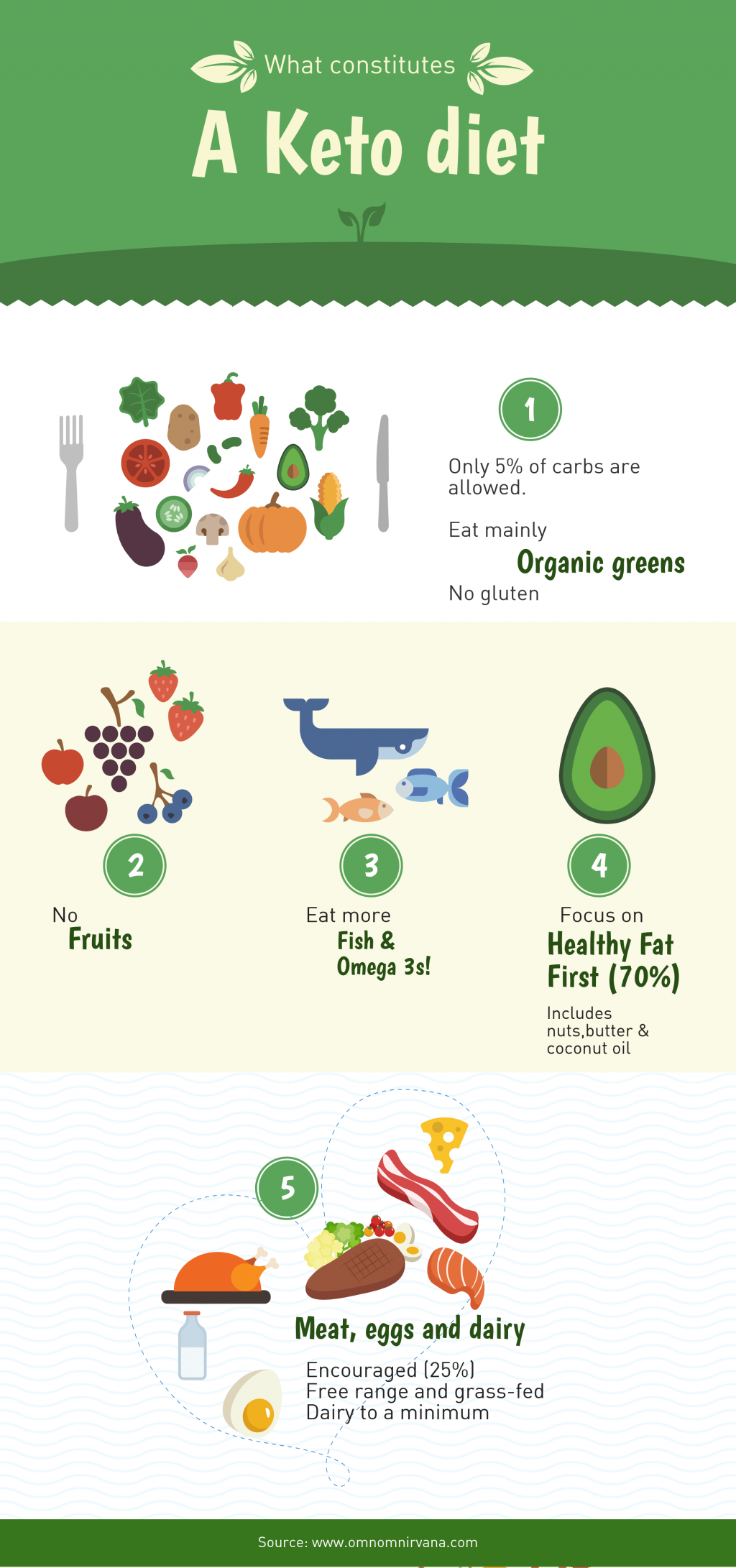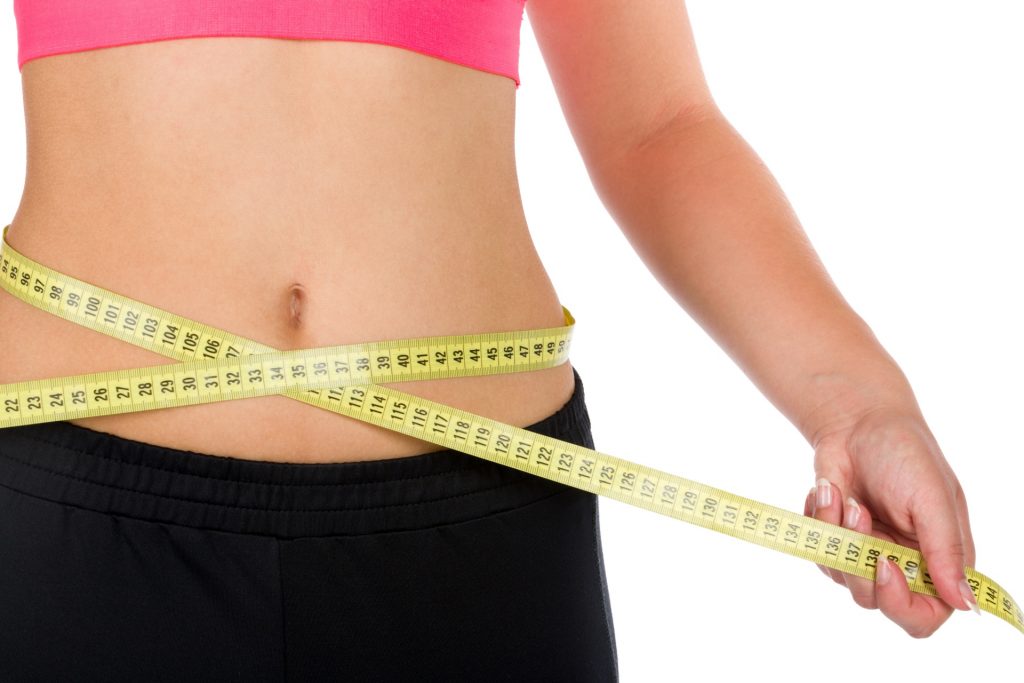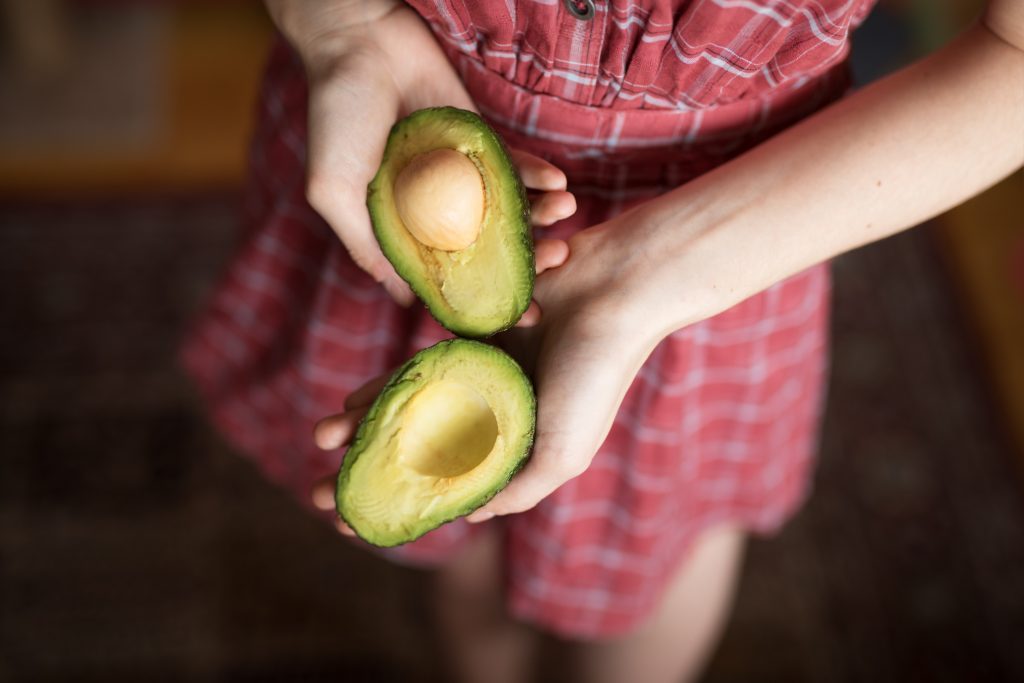Is keto good or bad for you? When I first started writing this article, I wanted to break the ‘keto myth’, however, after speaking to various experts from physical trainers to nutritionists, it really does seem that many could benefit from going on this diet. While many of us see that it’s a ‘trending’ diet and a generic buzzword that go along with bone broth or even AIP, it seems that when done right, a ketogenic diet could actually help you break that weight loss plateau you’ve been struggling to overcome, to starve off cancer symptoms (this one is still a little tough for me to believe) and actually regulate your hormones. (Yes, even if you have PCOS). I’ve broken down this post weighing the pros and cons of pursuing a keto diet. Whether you go for it is really up to you, however, I’ve found that a whole foods diet is the best solution.
1. What is a keto diet?
A keto diet is a high fat, low carb diet. ‘Keto’ refers to ‘ketosis’, a process where your body burns fat. This happens when the ketones in your liver metabolize the fat. What’s important in the keto diet is that you completely eliminate high carb sources, which forces your body to burn the fat. The same concept as fighting off PCOS by ‘eating fat to burn fat’, thereby regulating your hormones.
You usually determine you’re in ketosis through your urine samples. You will need to buy a urine testing kit for the same. Another method I’ve come across is feeling a metallic/fruity breath once you go keto.
2. What does a person eat on a keto diet?
I’ve devised up this quick infographic for you so that you know what a person eats on a keto diet.

3. Is keto good or bad for you?
Short answer: It really depends. As I increasingly explore various diets (safely, of course with the help of my nutritionist), I’m rapidly seeing everyone’s body is different. Of course, medical science can take you as far as testing your allergies, but even allergies change with time. The best way to figure what works for you is to follow the diet strictly and record your progress for 2 weeks. If it doesn’t work and you see no change, you need to experiment otherwise. It’s important to note your vitals because if you’re going about keto wrong, you might have high cholesterol levels as well as will be prone to heart disease, commented Rashi Chowdhary, Dubai Health Authority registered nutritionist and diabetic educator. Here’s what the experts I asked had to say about keto:
1. Burns fat, thus promoting weight loss

Much like the PCOS recommended diet, keto is the same. It uses fat to burn fat, but only provided your carb intake is minimal. Michael Sole, a Performance Nutritionist from Shimmering Sands Takes you Beyond Human says,
“Ketogenic dieting is probably one of my favourite subjects to discuss. In fact, it is my favourite subject to discuss. The diet itself has bought about so much controversy in the field of nutrition, particularly sports nutrition, so much so that there are current court cases going on involving doctors and other highly regarded researchers in the field. I think where the major concern, in my opinion, comes from in regards to this style of dieting, is the lack of understanding around what is going on when you are actually ketogenic dieting, and the lack of understanding about nutrition in general.
A ketogenic diet is essentially a way to manipulate the primary substrate that you are using as energy, in this case using fat vs carbohydrate (glucose). The idea behind the diet is to help stabilize and regulate blood sugar levels, hence its clinical use in disorders like epilepsy and cardiometabolic disorders. However, with the popularity of its use amongst the general population, it seems to have taken itself out of the clinical setting, and into the lower entry-leveled world of modern day “health and fitness” as a “revolutionary” way to lose weight and optimise all-things health, with carbohydrates being deemed the devil.
Weight-loss, which is the reason most people embark on the ketogenic journey, is an achievable task in many ways. As I like to say, “there are a number of ways to skin a cat”, just like there is a number of ways to prepare a spaghetti bolognese. Ketogenic dieting is by no means revolutionary, and in some cases can be impairing to weight-loss due to peoples lack of understanding about nutrition.”
Sean Houllihan and his partner Olivia Gunn at Trouli Wellbeing both tried the keto diet. Sean greatly recommends it, but Olivia is a celiac struggled greatly and quit the diet after 8 days. It all goes back to see what works for whom. Sean did say however that both he nor Olivia lost fat, but he had noticed a thinner face and leaner muscle build.
2. When your macros are not measured well, you are going to get fat

Michael weighs in. “You must understand the basics of nutrition to obtain weight-loss results, i.e., calories do matter. Because calories do matter, and the conventional way to ketogenic diet is by increasing fat intakes up to 80% of your total energy intake (note that fat is the most calorie dense nutrient – 9kcal per 1 gram) there is a risk of overeating (eating too many calories), as the majority of people doing the diet haven’t a clue of how many calories they are eating in the first place. For example, loading your diet with fatty meats, eggs, full-fat cheeses and creams, can quickly take your total intake far beyond what you require on a calorie basis, and yes you will get fat. Where the diet does work, and this is the only reason it works, is when someone doesn’t over-eat. This is usually due to an increase in their overall protein intake (protein makes you full), and a drastic increase in vegetable consumption (also makes you very full), therefore achieving a spontaneous reduction in overall calorie intake. However, as I said, there is a risk of overeating if you are not appreciating the basic laws of thermodynamics.” he says.
3. People often overuse dairy

Using a hunk of cheese on everything you eat could be very tempting, but that could be detrimental in you reaching your goals, leading to high cholesterol levels. Used minimally, however, and you might see success. Sean thoroughly enjoyed the switch up in his diet patterns as a person who owns his own active lifestyle business and collaborating with FitSquad DXB, a mobile personal training platform. “For someone who has ALWAYS lived a hi carb lifestyle, I loved the diet. I’m pescatarian so ate lots of salmon, avocados, nut and oils etc. As for dairy, I went to town on the cheese. That being said dairy isn’t necessarily “not” recommended but advised to not over consume due to both the hidden carbs found in dairy but also too much protein can cause one to be knocked out of ketosis.”
It might be important to note that dairy is not recommended for people suffering from auto-immune conditions such as Hashimoto’s disease or PCOS, with the possible exception of grass-fed ghee or butter which has minimal levels of lactose.
4. Can be deemed as unsustainable

Can you imagine getting off bread and fruits for life? While creating a certain lifestyle is hard enough, getting back off from keto could trigger yo-yo dieting and the weight could just bounce back, says Rashi.
“Ketogenic dieting works for weight loss, as does eating moderate amounts of carbohydrate in a portion-controlled manner. Find what works for you. If you love to eat potatoes, bread, cereal, and all the rest of the tasty carbohydrates this world has to offer, then learn to portion control and incorporate them into your diet. If you are happy to restrict these from your life/diet and continue to live in the world of ketogenic dieting, then still learn to portion control and understand how nutrition works. Moral of the story, learn what constitutes calories, how much does this equate to? what you need, and the world of nutrition will be so much more simplified for you.” says Michael.
Sean, on the other hand, thinks it could be deemed as sustainable for some. “Yes, I do believe it is definitely sustainable long term – for some people. I’m pescatarian so keeping the meal combinations was one of those hardest things to consider however if one was to eat fatty, keto-friendly meat then for sure. The diet is being prescribed by doctors to patients suffering from epilepsy, multiple sclerosis, polycystic ovary’s and many other inflammatory diseases and a long term option to prevent seizures and pain. Dominic D’Agostino is a big proponent in the Ketogenic scene so anyone wanting the nitty gritty can check his finds out on his social media…this being said Dr Andy Galpin suggests to cycle ketogenic diet, high carb diet, high protein diets to optimise our health, allowing the body to detox properly but also suggests that adaptation is good for the body.”
On further study on Dr Galvin’s commentary, I’ve personally found that since Keto is a relatively new concept; we don’t know the long term effects of it, ie. longer than 24 weeks (6 months). A study by Dashti et.al who put 83 obese patients with high glucose and cholesterol under a keto diet revealed that “The weight and body mass index of the patients decreased significantly (P<0.0001). The level of total cholesterol decreased from week 1 to week 24. HDL(high density lipo protein otherwise known as healthy cholesterol) cholesterol levels significantly increased, whereas LDL(low density lipo protein, otherwise known as unhealthy cholesterol) cholesterol levels significantly decreased after treatment. The level of triglycerides decreased significantly following 24 weeks of treatment. The level of blood glucose significantly decreased.”
5. Lack of nutrients
Going on a keto diet may lead you to have a certain lack of nutrients. Not all fruits or carbs are bad! “I’ve just come off the keto diet after 4 weeks for no reason other than the sense that I wasn’t getting a broad enough range of nutrients. The very nature of that diet requires you to sever off a whole food group (carbs/fruit) which may otherwise be providing much-needed vitamins and minerals. So if you need a reason not to go keto it may be because you don’t wish to limit potentially necessary nutrients and biota that you cant acquire from fats alone…? I’m a rookie however so could be wrong!” says Sean.
6. Facing keto flu
When you first try the keto diet, it can be a bit daunting. Some flu-like symptoms can be experienced along with some sluggishness. When your body moves into ketosis, then that’s when you start to feel energetic.
7. Focus on whole foods

Going keto can actually stave you off processed food, which is great! “For me; I had lots of energy, reduces/no hunger pangs, no bloating or heavy acne breakouts and just by taking up the diet you organically stop eating processed food and I think that plays a huge role in the experience of health benefits related to the ketogenic diet,” says Sean. “We took a lot away from trying the diet; stopped mindless/habitual eating, physical and cognitive effects of carbohydrates (brain fog and bloating), we stopped eating fully processed and packaged food and it became much more about the necessity of eating to fuel the body rather than for sensory pleasure. Because of this diet, we stick to a less strict high fat, lots of veggies and fruit, and really limit wheat products and all refined carbohydrates and feel much more balanced for it.”
8. Supplements are important either way
On asking Sean whether he had to take additional supplements to support the keto diet, he said, “I didn’t take any specific supplements especially for keto, but I was taking creatine, beta alanine, L-glutamine and X50 Vegan protein but those are only for post work out and recovery which I take regardless of my diet. However I do have close friends who are using exogenous ketone supplements which help keep them in ketosis. However they are super expensive.” Just keep in mind that there are ketone supplements available in the market, but consult a professional doctor/your nutritionist and trainer before going for them.
9. Keto can be detrimental for those with auto-immune diseases
I just listened to this podcast called The Paleo View that’s worth a listen. Going on a keto diet can result in malnourishment, especially because of the low amount of carbs in the diet. Keto often focuses a lot on low carb vegetables, which might not be providing your body with the nutrition you do need. There’s a lot of negativity associated with insulin, but it’s got such an important role in the body, especially in terms of maintaining optimal T3 levels. Dr. Sarah Ballantyne also highlights the adverse reactions of having a low carb diet here.
Parting thoughts
It’s amazing how switching to a high-fat diet can have such a tremendous effect on one’s health, especially if you suffer from PCOS. However, one must not negate the presence of exercise and watch their intake very carefully. You can set the percentages of your macros on My Fitness Pal and use this keto calculator to first determine how many calories you need to be consuming. However, it’s clear that a keto diet is not a long-term solution to weight loss or solving metabolic issues, but it could make a world of difference for those who suffer from cancer, epilepsy, autism, PCOS, diabetes & obesity.
That sums up my article on whether keto is good or bad for you. Have you experimented with keto? Let me know in the comments below.
Disclaimer: Please note, before you embark on a keto diet, it’s important to consult a medical professional and a physical trainer. It’s also important to keep close tabs on your progress every 2 weeks. The purpose of this blog post is to inform and doesn’t substitute professional advice. None of us will be taking responsibilities of any liability that may arise out of trying this diet. Do what works for you.

4 Comments